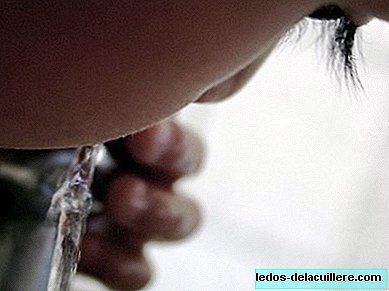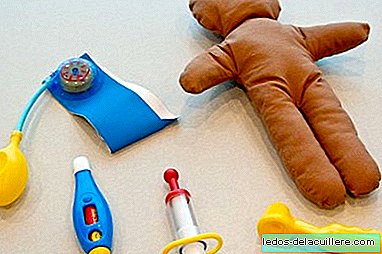
"Babies have to sleep in their room, in their crib," I have heard and read on one more occasion. Sometimes it is said that after three months, sometimes after six, sometimes together until the year of life. The fact is that sooner rather than later it is usually said that where a baby is best is in his crib, in another room.
The problem is that this recommendation clashes head-on with other recommendations such as Margot Sunderland, director of education and training at the Children's Mental Health Center in London, which says that children should sleep with their parents for at least five years or more. Nils Bergman, a neonatologist and one of the parents of the Mother Kangaroo Method, which says that parents and children should share a bed at least up to three years.
Then one wonders why so much disparity and the answer is, perhaps, in other cultures, since in countries where babies have always slept with their parents they hardly know what sudden death is.
Differences between Asian culture and English culture
We Westerners believe that, because we are from the first world and be at the forefront of everything, we have a greater knowledge of all life processes (what is said to be "believe the navel of the world"). However, surely we can quickly realize that, in many things, being so advanced we have gone from thread and we would almost have to look back to find the calm, peace and good food and customs that we have already lost. I speak of the stress of our civilization, of having lost the possibility of taking care of our children because we work both parents and the children are taken care of by third parties, I speak of going to give birth and that with so much instrumentalization and control many births end badly, I speak of so many things that, perhaps in other cultures, because they have not yet arrived, they carry it better.
These differences were seen a few years ago in England, specifically in Birmingham, where they showed that English babies had an incidence of sudden death more than double that of Asian-born babies living there. They saw it in a study in which they surveyed 374 multiparous mothers from a city community.
They observed that the majority of Asian children slept in the parents' bedroom (94%) while in the case of British children, 61% did. When asked how many children slept alone each night, 33% of white children did so compared to 4% of Asians. They were also asked about the position in which they put their babies to sleep and saw that 31% of white children slept in a position not recommended, that is, in prone position, compared to 11% of Asians.
All these data came to show that Asian culture, which shared more space with babies than English, did better. Better because sleeping together and putting babies on their backs had a sudden death rate, as I said, of less than half.
When Michel Odent traveled to China

Michel Odent is a well-known gynecologist, famous for getting ahead of his time decades ago advocating a less interventionist delivery at a time where the opposite was usual. We talked about it several times in Babies and more and one of the curiosities that he explained in the magazine Lancet, back in 1986, it was that he had been in China and that he was very surprised there to realize that they didn't know what sudden death was:
No one understood my questions; The concept of sudden death was unknown by many of the professionals and the inhabitants of places like Beijing, Hsian, Loyang, Nanking, Shanghai and Canton. Also, I learned that Chinese babies sleep with their mothers. Since then, I have been certain that, even if it happens during the day, sudden death is an exclusive disease of those babies who spend the night alone and, also, that this phenomenon only occurs in those societies in which The nuclear family predominates.
The current China
This, of course, is Odent's conclusion of a visit to China where he saw that babies were sleeping with their mothers and that they had no idea what sudden death was, probably because, or it never happened, or it happened so isolated. that nobody there thought it was a syndrome with a certain pattern that could be prevented in some way.
But hey, these gynecologist's words are almost 30 years ago. What happens in today's China? For my work I have the opportunity to talk to women there, who now live here, and asking them about this issue something similar happened to me. They don't know what sudden death is. They do not understand the concept. I explain that there are babies who die during the night and make a face of tremendous concern.
Now, when I ask them where babies and children sleep in China, they explain to me that normally with parents, but that more and more they are choosing to separate them (apparently, the shadow of the west is so great and devastating that even in that they begin to imitate us).
They explain to me that the usual thing is to sleep with the children because they are aware that they are afraid, that they do not want to be alone and that's why they share space with them. "So, are you with them until two or three years?" I ask. "Two or three years is the minimum," they respond, meaning that it is not a matter of age, but of see that the child is ready to sleep alone.
Come on, that simply by respecting the needs of children, to accompany them during the night, just as they do during the day (I doubt that they consider leaving them alone at night), Asian cultures have sudden death rates so Lows who don't even know what Sudden Death Syndrome is. And perhaps the most curious thing is that, they do not do it to prevent even for health reasons of the baby. They do (or have done so far) because they have always done it that way and the opposite would seem out of place.












